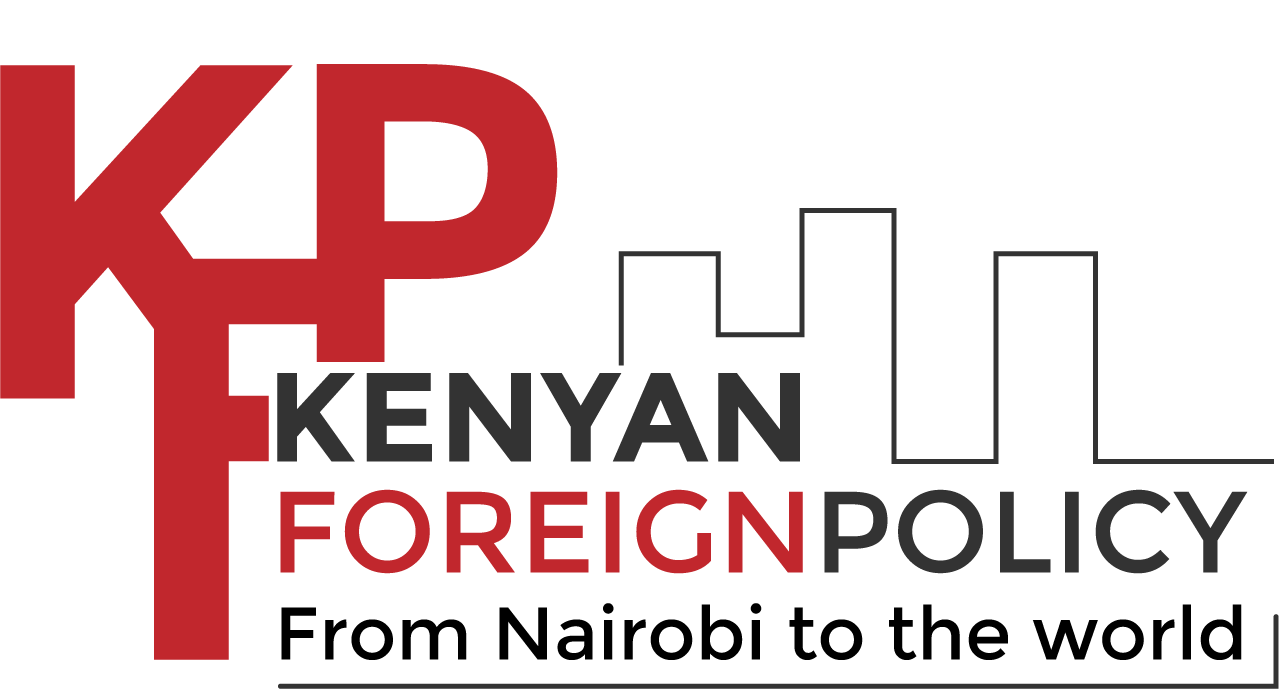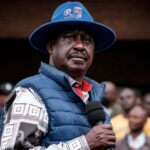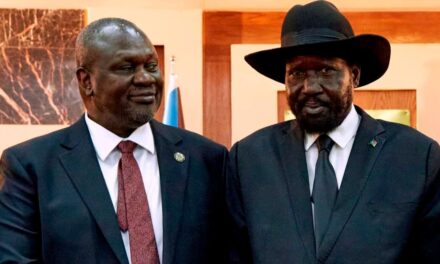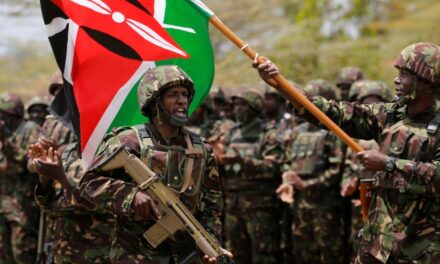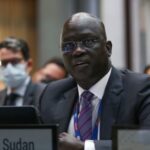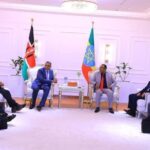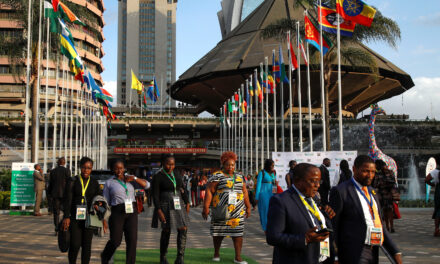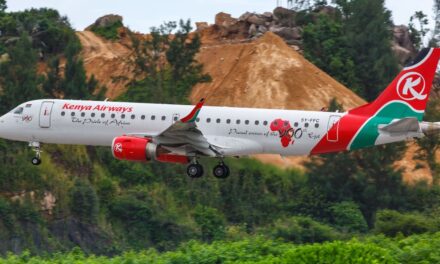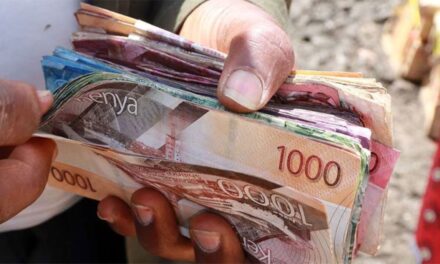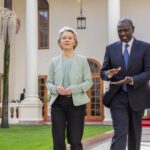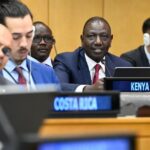
Why State Officials in Kenya Require a Protocol Crash Course
Posted by Mwangi Maina | Sep 10, 2023 | DIPLOMACY


Nairobi this week hosted more than a dozen African leaders and some of the world’s fiercest climate change campaigners for the maiden edition of the Africa Climate Summit.
The event, held from Monday to Wednesday, had been convened to address Africa’s increasing exposure to climate change and its associated costs on the continent.
This was President Ruto’s first major diplomatic assignment and Kenya had to roll out a red carpet, mount a military guard and a troupe of dancers and singers to entertain the Presidential and high-level delegations during arrival.
Every gesture, every word, and every action mattered in the hectic hallway of the presidential pavilion at Kenya’s busiest airport, JKIA.
Unlike in South Africa, during the BRICS summit, where a welcoming protocol dispute emerged between India and the host nation, after Prime Minister Narendra Modi, allegedly refused to disembark from his aircraft due to what was perceived as a lack of seniority in the welcoming delegation from the South African government.
A cabinet minister had been sent to receive the Indian leader, who declined to get off his plane at the Waterkloof Air Base in Johannesburg until the South African Deputy President saved the situation.

Back home, a seemingly innocent act happened during the Climate summit and it created an online buzz, and highlighted the need for a crash course in protocol.
At the center of the event was Nyandarua Senator John Methu who had been designated to serve as one of the summit’s escorts of honor and was to guide and accompany the Mozambican President Filipe Nyusi from the airport to his hotel then to the summit.
A responsibility that should have been conducted with dignity and respect changed dramatically when the youthful and charismatic senator took advantage of the opportunity. He leaned in, extended his arm, and snapped a selfie with the visiting President sitting in the backseat of the car.

The image quickly made its way onto X (formerly Twitter), where it was met with a barrage of outrage and disgust.
The uproar was not unjustified. In the world of diplomacy, where every action reflects the character of a country, such an act was regarded as a breach of protocol and privacy and a slip in decorum.
However, this was not an isolated instance. It was a harsh reminder of the importance of protocol training for not only appointed escorts but also foreign ministry officials and their entourage. These individuals are the faces of their countries, charged with upholding the etiquette, respect, and courtesy expected during high-level diplomatic events.
Diplomacy, it turns out, is about etiquette as much as it is about international relations.
Protocol officers play a critical role in ensuring that foreign dignitaries are welcomed and escorted with utmost respect. They offer cultural insights and assistance, ensuring that diplomatic interactions are free of mistakes that could jeopardize relations.
Understanding the motivations behind protocol violations is very critical. Senator Methu’s episode generated issues about whether his behavior was motivated by excitement, a desire to outdo others, or simply a lack of knowledge of the gravity of the moment.
Methu’s incident was not an isolated instance involving a Kenyan official. The Foreign and Diaspora Cabinet Secretary, Alfred Mutua, exhibited similar behavior during the summit.
The former Machakos governor was spotted pocketing his hands during chats, even when strolling alongside prominent international figures such as UN Secretary-General Antonio Guterres.

During the 13th annual BRICS meeting held in South Africa, which brought together leaders from Brazil, Russia, India, China, and South Africa, Alfred Mutua, was among those present representing Kenya, and his behavior at the conference raised eyebrows.
The episode that started the debate was Mutua’s encounters with international leaders. As photos surfaced on social media, observers remarked that the former government spokesperson appeared to be particularly insensitive with some of the presidential delegations in attendance.
The minister was spotted holding the hand of Tanzania’s President, a Muslim woman, in one image that drew a lot of attention. Many Muslims follow cultural and religious traditions that limit or outright prohibit physical contact with people of the opposing sex who are not family members or close friends. Many nations’ identities and behaviors are based on cultural norms, and diplomatic protocol demands them.

The reality is that the mannerisms by which we greet each other vary vastly across cultures. Latinos, for example, often greet each other with a hug and a kiss on one cheek. Europeans kiss on both cheeks, and Arabs do three! So, there is no one way to greet a person!
Was it a friendly gesture or a diplomatic blunder?
Mutua’s engagements with leaders from Comoros and South Africa also gained attention. He was spotted clutching the Comorian President’s left hand while playfully pointing at him in a group photo with the African Union chairperson and Tanzanian President Samia Suluhu.
While the mood was lighthearted, several questioned whether such intimacy was in accordance with diplomatic procedure.

When having a light chat with South Africa’s President, Cyril Ramaphosa, the summit’s host, the minister appeared to be anxious to make personal contact, but the South African leader appeared to be more restrained by keeping his hands to himself.
This difference in circumstances, especially with regard to the heads of state, raised questions as to whether these gestures are appropriate.
Is it excitement or a desire to shine?
One can’t help but question if Mutua’s actions were motivated by pure excitement or a desire to stand out on the international scene. He is no stranger to the political spotlight, having served as a two-term governor and a former government spokesperson. Diplomacy, on the other hand, necessitates a distinct set of talents, including the ability to read the room and accept differences.

While it is stated that our Foreign Service Academy’s mission is to provide world-class diplomatic training, and career-long learning opportunities to Kenyan government foreign affairs officials in order for them to excel in today’s global arena while advancing Kenyan interests, and delivering on behalf of the people, the big question is whether this academy is up to the task.
Diplomacy is frequently compared to a delicate dance, with each step meticulously designed to show respect, cooperation, and goodwill. The activities of foreign ministers and their teams at such gatherings can either strengthen or, in certain situations, unknowingly undermine diplomatic relations.
Your support empowers us to deliver quality global journalism. Whether big or small, every contribution is valuable to our mission and readers.
